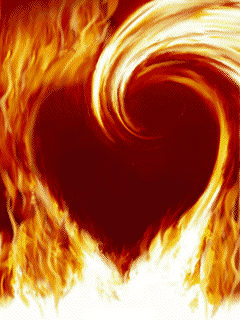Light My Fire
LIGHT MY FIRE
Sharing my sermon from last Shabbat…
If his book The Sabbath is a window into Rabbi Abraham Joshua Heschel’s thinking, I believe that if he were commenting on Parshat Emor (the portion for last Shabbat), he would say that it deals a lot with time and not so much with space. In his book, he emphasizes Shabbat as a way to reflect on time, and worry less (or theoretically not at all) about our space and what we may have or have not produced during the other 6 days in that space.
So, in Parshat Emor, we are instructed to stop work and have a Sabbath of rest. We are told to eat unleavened bread for Passover. We are given rules about the Day of Atonement and Sukkot, and we are taught to bring an omer (a portion of the very first reaping) to the priest, followed by 7 weeks of counting until we were required to bring new grain. Note that all of this is attached to a specific time and not to a place or space.
We are in the midst of the season of counting the Omer right now, which begins at Passover and ends at Shavuot. It is considered a time of semi-mourning because when it was tied solely to agricultural concerns, we were worried about weather patterns and we knew (and those of us who have lived through extremely abnormal weather still know) how important good conditions are for the harvest. It is also said that there was a great plague that afflicted the students of Rabbi Akiba at the time of the Omer and that that is why it’s a time of mourning. Observant Jews, therefore, refrain from public joyous activities during the Omer such as weddings, parties, listening to instrumental music, or even cutting one’s hair.
However on the 33rd day of the Omer there is a break called Lag B’Omer (33 being represented by the letters Lamed and Gimel which add up to 33 in their numeric equivalents). It is a semi-holiday also about marking time. Observant Jews move from utter seriousness to utter light-heartedness for one day. So there are bonfires symbolizing the light of the Torah, and folks go hiking. Children have field trips at school. There are many, many marriages on Lag B’Omer, and 3 year old boys line up for their celebratory first haircuts. … And all this was last Thursday.
As modern Jews we may or may not count the Omer, and we may or may not see this as a time of semi-mourning. But as with all things Jewish, we can always pull from the tradition a Universal lesson for us and for all humankind. So, in the spirit of Lag B’Omer and the many bonfires that were lit recently, here is my question for you…
What lights your fire?
We all have times in our lives, maybe 7 weeks like the Omer, maybe longer or shorter, that are mournful or stressful or dark in one way or another. And when we are facing difficult times, we all need a little break, don’t we? We need a chance to forget about whatever crisis we are swimming in, even if we only have the strength or ability for a small distraction. And when we are in that situation, what lights us up? What help us feel alive and charged and ready to take on reality? Is it throwing Pottery? Or Volunteering? Swimming in a lake?? Playing with children or grandchildren? And do we really have to wait for an extended time of pain or for Lag B’Omer to light that fire? Can we dedicate a slice of time to adding some excitement to our lives even when things are pretty normal?
Take a moment now and think of at least 3 activities that light your fire. And maybe give extra thought to ones that not only light your fire but someone else’s too through an act of loving kindness. If you’re willing, share them in the comments so we can inspire each other to find even more ways to light our fires.
I’ll share some of mine to get you started
- Sleeping where I can hear the ocean
- Volunteering for Meals on Wheels
- Teaching
- Cuddling with my kids in the morning when we don’t have anywhere to be
- Traveling… anywhere.
So, to come full circle, let’s try to remember that it’s time that is precious. The way we spend that time and how we mark the cycles of that time are more precious than the products of that time. And let’s, as part of that observance of the cycles of time, make sure that we find some activities that light our fires. For some of them, maybe we can simultaneously light someone else’s fire too by bringing them joy, warmth, love, food, or care and a little distraction.
So let’s seal this sermon with a blessing from Havdalah.
Baruch Atah Adonai, Eloheinu, melech ha-olam, borei m’orei ha-eish.
Blessed is the Source of the creation of the light of the flame.


